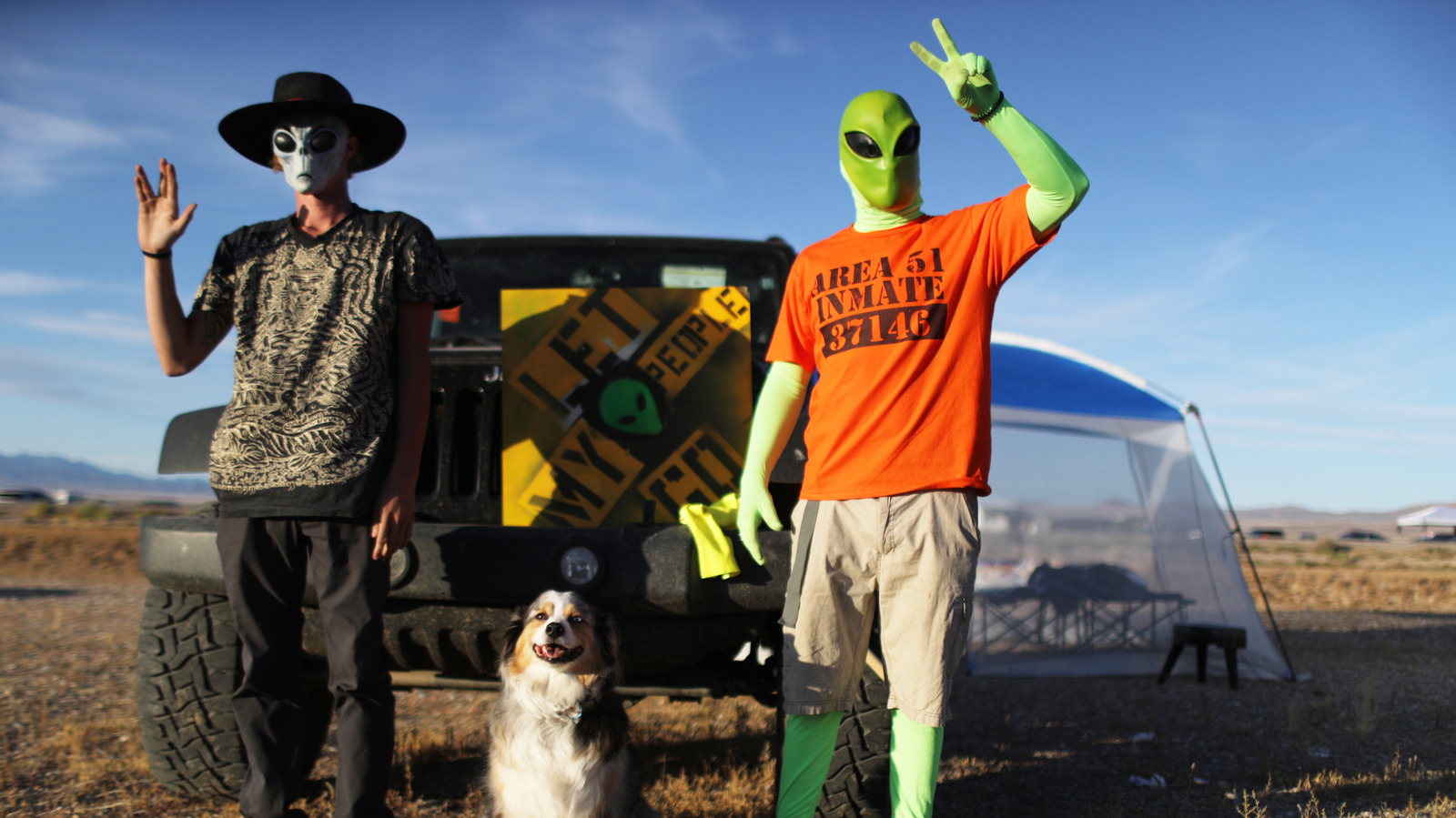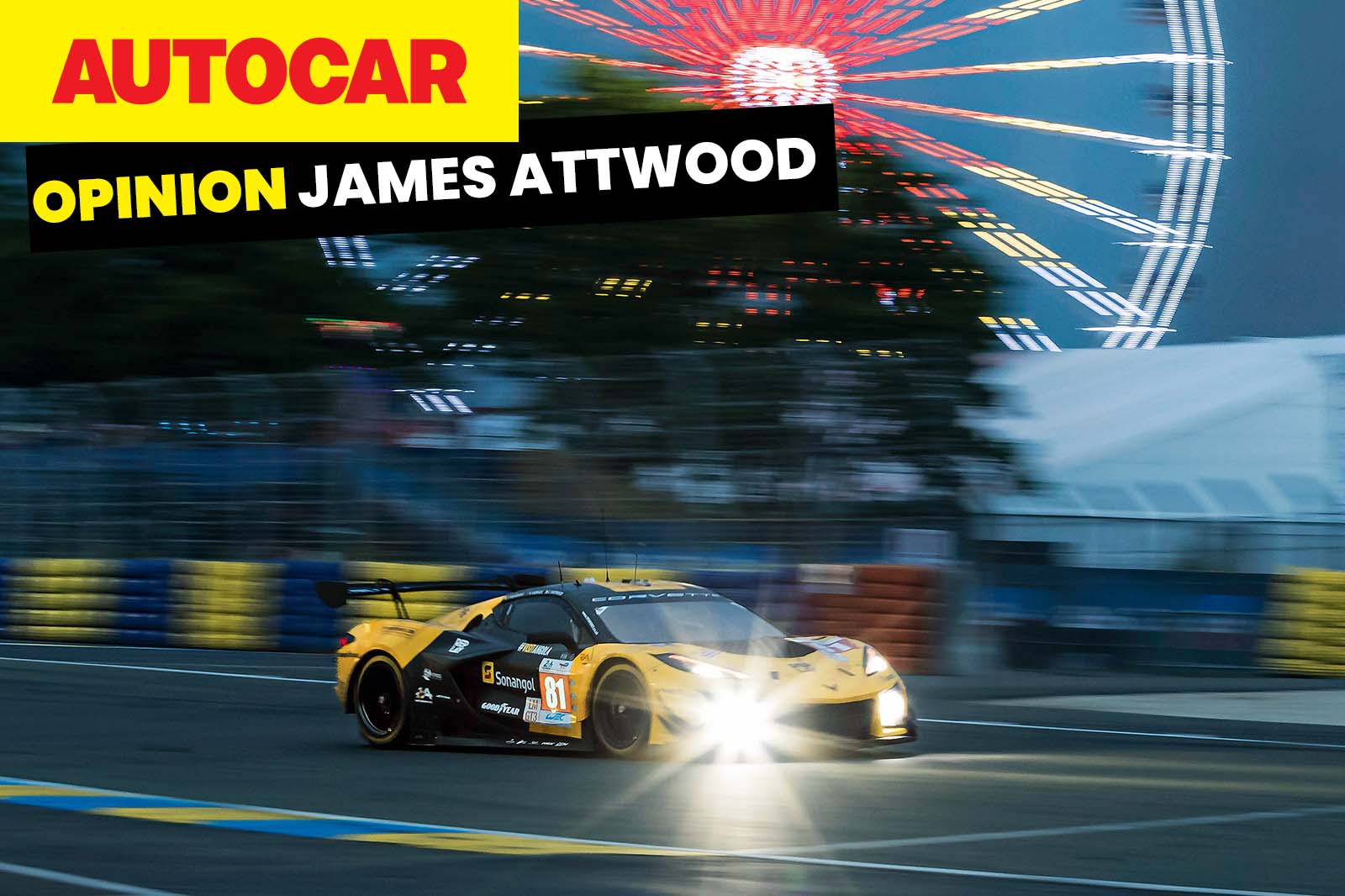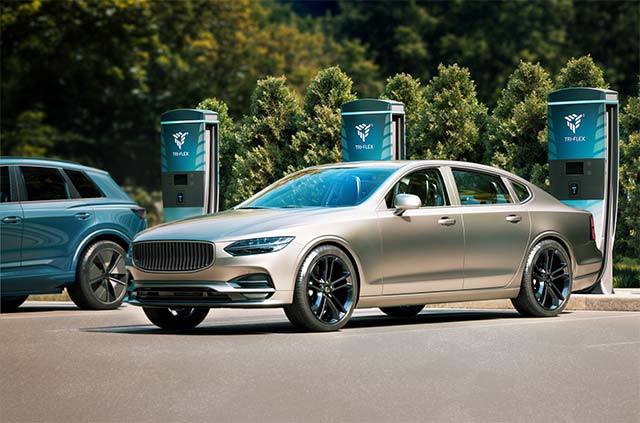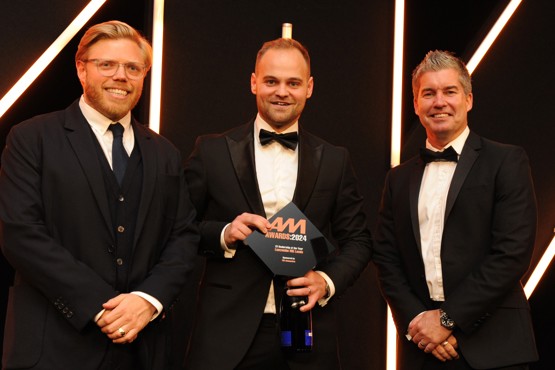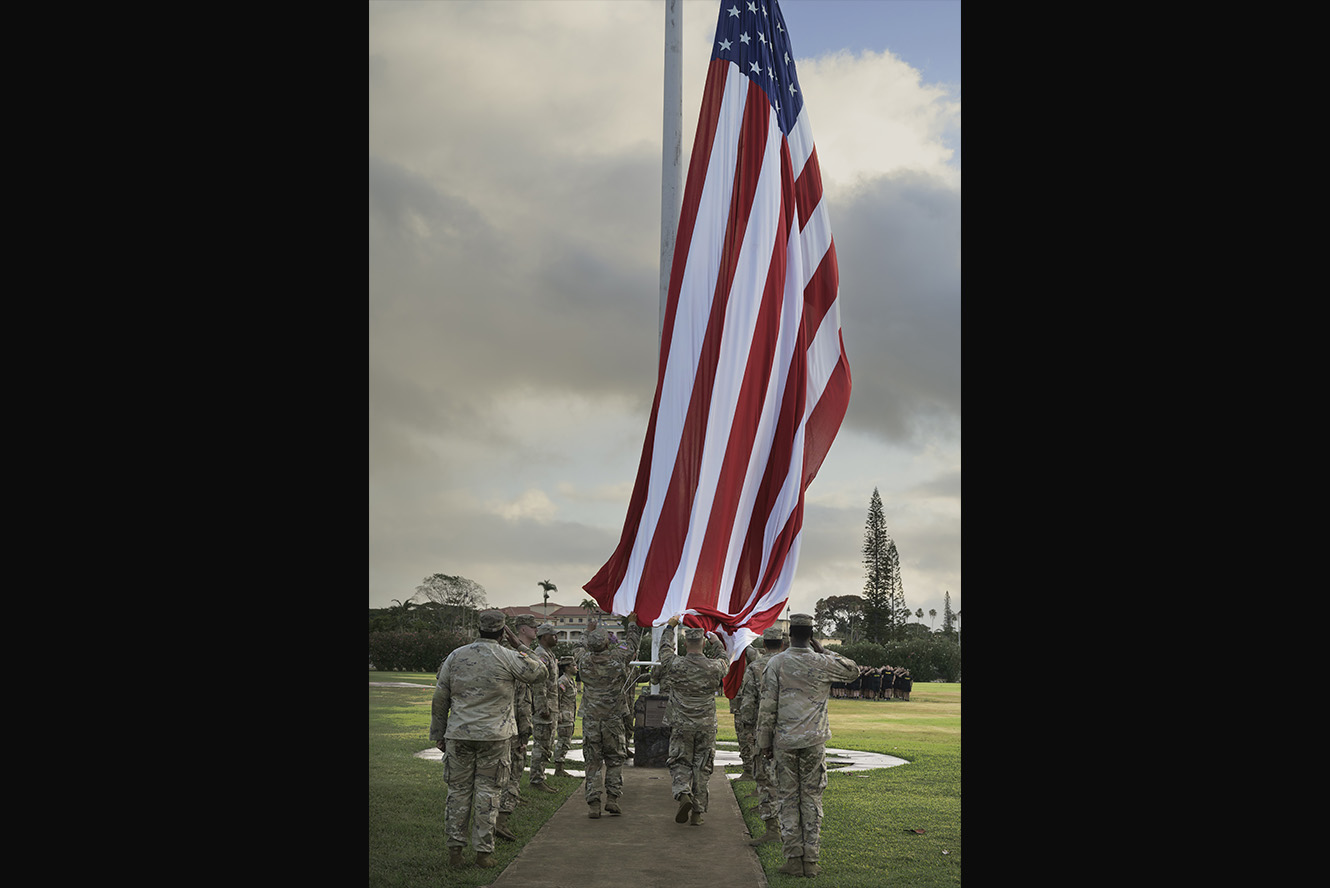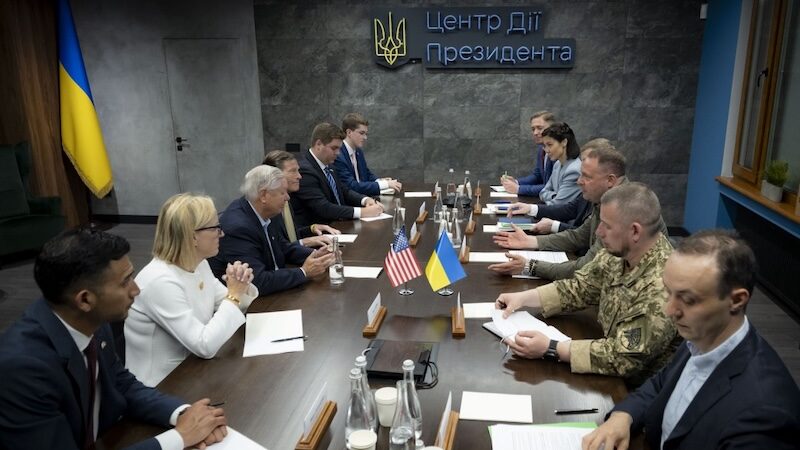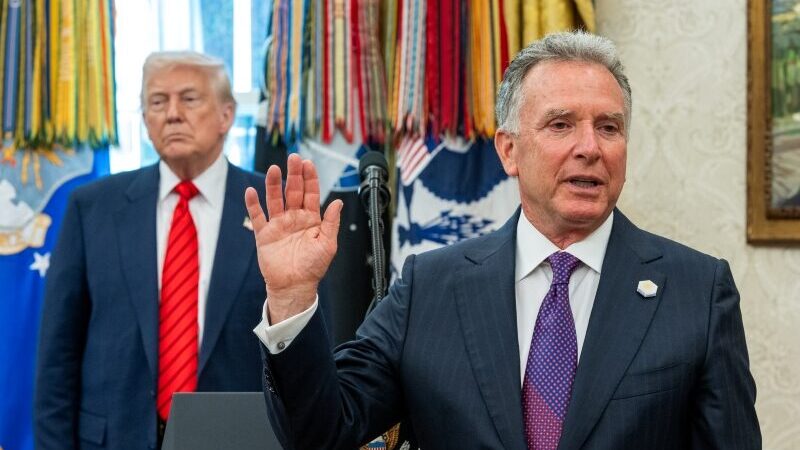Remembering My Friend Ken Kersch
For the Balkinization symposium in honor of Ken Kersch Carol J. Nackenoff Ken Kersch was not only a superb scholar but a good friend.I knew something about Ken before I met him in 1997. His father and I were members of the Horatio Alger Society, a small group of book collectors, researchers, and fans of late 19th and early 20th century series books for boys and girls. I learned that Ken, a lawyer, had gone back to graduate school to get a Ph.D. in Government from Cornell. His father wanted to hear what I thought about Ken’s career prospects, and I offered some positive words.Ken and I met at a Northeastern Political Science Association panel in Philadelphia, when he was working on his dissertation. As a discussant for a panel on which his paper had been placed, I was struck by how astute, ambitious, careful, mature, and creative Ken’s scholarship was. This was no ordinary graduate student, I said to myself. He subsequently won the 2000 Edwin S. Corwin Award for best dissertation in public law.We soon struck up a friendship and talked a couple of times a year by phone. Starting from his move to Lehigh University, Ken would frequently consult me about career and work-related matters, and we would talk about our research projects, films, books, and more. One time, Ken came to Swarthmore and we spent a wonderful day driving out to the Brandywine Valley, combing through Baldwin’s Book Barn, a fabulous old, multi-storied used bookstore, and concluding with a nice meal at Simon Pearce, a glass blowing workshop and restaurant overlooking the river. Ken was not interested in his father’s Alger collection but had other collecting interests, including art.When we were both participating in the same convention, we’d make plans to get together over dinner in whatever city—usually just the two of us. The last time I saw Ken was at the New England Political Science Association Meetings in Newport, RI in April 2024. I had persuaded him to join a panel I was assembling. My last conversation with Ken took place in late August, 2024. He called me with the news about his diagnosis, near-death experience that summer, his weeks in the hospital, and treatment options. Feeling pretty well at the time we spoke, Ken said that he and the doctors were hopeful, but that these were uncharted waters for someone his age with this form of cancer. I thought that not hearing from Ken for a few months was probably a sign that he was doing well, but I owed him a call and knew it. I also knew that Ken was a rather private person and, just like he waited to tell me about what he had been through since I had been with him in April, he would share in his own time. I was caught up in foreign travels and my own writing deadlines. Instead, a friend forwarded Sandy Levinson’s announcement on the Conlawprof listserv in November.Ken twice served as the external honors examiner for my Swarthmore College honors seminar in Constitutional Law. I invited him to campus as our 2006 Constitution Day speaker when he spoke on “Thinking About American Civil Liberties Historically.” I remember how much Ken enjoyed sitting down to dinner with our students to discuss the talk. Over the years, he was generous with students of mine interested in further exploring the development of conservative constitutional thought in the United States. He was happy to offer advice to those considering pairing graduate work in political science with law school.I don’t think Ken ever said no when I asked him to serve as a panel discussant, and he was simply outstanding in a role that earns no one any professional credits. Just as when he chose to serve as a faculty mentor at Princeton, eating dinner in the dorms with students a certain number of times a year despite being advised it was a waste of his time, Ken did things because he enjoyed them and found value in doing them. As a discussant, he gave every paper a serious read regardless of the topic or perspective, and he offered stellar comments. He was always supportive, even when offering serious criticism. I consider him the best discussant I have ever had; he also generously read my own work and gave me outstanding suggestions.I served on an author meets critic panel on Constructing Civil Liberties at the American Political Science Association meetings in 2005 and thought Ken’s book was terrific, although I argued with him about the final chapter in which he voiced displeasure with the Court’s willingness to cite and draw upon foreign constitutional law—which I thought was neither as novel nor as dangerous as he did—he was always gracious and interested in carrying on the discussion.In 2006, I chaired the J. David Greenstone Award Committee for best book published in Politics and History during the previous two years. Shep Melnick and Peter Trubowitz were the other members of that committee. After we reviewed a number of nominated books, we named Ken a co-recipient of this award. Here is part of the citation we
For the Balkinization symposium in honor of Ken Kersch
Carol J. Nackenoff
Ken Kersch was not only a superb scholar but a good friend.
I knew something about Ken before I met him in 1997. His father and I were members of the Horatio Alger Society, a small group of book collectors, researchers, and fans of late 19th and early 20th century series books for boys and girls. I learned that Ken, a lawyer, had gone back to graduate school to get a Ph.D. in Government from Cornell. His father wanted to hear what I thought about Ken’s career prospects, and I offered some positive words.
Ken and I met at a Northeastern Political Science Association panel in Philadelphia, when he was working on his dissertation. As a discussant for a panel on which his paper had been placed, I was struck by how astute, ambitious, careful, mature, and creative Ken’s scholarship was. This was no ordinary graduate student, I said to myself. He subsequently won the 2000 Edwin S. Corwin Award for best dissertation in public law.
We soon struck up a friendship and talked a couple of times a year by phone. Starting from his move to Lehigh University, Ken would frequently consult me about career and work-related matters, and we would talk about our research projects, films, books, and more. One time, Ken came to Swarthmore and we spent a wonderful day driving out to the Brandywine Valley, combing through Baldwin’s Book Barn, a fabulous old, multi-storied used bookstore, and concluding with a nice meal at Simon Pearce, a glass blowing workshop and restaurant overlooking the river. Ken was not interested in his father’s Alger collection but had other collecting interests, including art.
When we were both participating in the same convention, we’d make plans to get together over dinner in whatever city—usually just the two of us. The last time I saw Ken was at the New England Political Science Association Meetings in Newport, RI in April 2024. I had persuaded him to join a panel I was assembling.
My last conversation with Ken took place in late August, 2024. He called me with the news about his diagnosis, near-death experience that summer, his weeks in the hospital, and treatment options. Feeling pretty well at the time we spoke, Ken said that he and the doctors were hopeful, but that these were uncharted waters for someone his age with this form of cancer. I thought that not hearing from Ken for a few months was probably a sign that he was doing well, but I owed him a call and knew it. I also knew that Ken was a rather private person and, just like he waited to tell me about what he had been through since I had been with him in April, he would share in his own time. I was caught up in foreign travels and my own writing deadlines. Instead, a friend forwarded Sandy Levinson’s announcement on the Conlawprof listserv in November.
Ken twice served as the external honors examiner for my Swarthmore College honors seminar in Constitutional Law. I invited him to campus as our 2006 Constitution Day speaker when he spoke on “Thinking About American Civil Liberties Historically.” I remember how much Ken enjoyed sitting down to dinner with our students to discuss the talk. Over the years, he was generous with students of mine interested in further exploring the development of conservative constitutional thought in the United States. He was happy to offer advice to those considering pairing graduate work in political science with law school.
I don’t think Ken ever said no when I asked him to serve as a panel discussant, and he was simply outstanding in a role that earns no one any professional credits. Just as when he chose to serve as a faculty mentor at Princeton, eating dinner in the dorms with students a certain number of times a year despite being advised it was a waste of his time, Ken did things because he enjoyed them and found value in doing them. As a discussant, he gave every paper a serious read regardless of the topic or perspective, and he offered stellar comments. He was always supportive, even when offering serious criticism. I consider him the best discussant I have ever had; he also generously read my own work and gave me outstanding suggestions.
I served on an author meets critic panel on Constructing Civil Liberties at the American Political Science Association meetings in 2005 and thought Ken’s book was terrific, although I argued with him about the final chapter in which he voiced displeasure with the Court’s willingness to cite and draw upon foreign constitutional law—which I thought was neither as novel nor as dangerous as he did—he was always gracious and interested in carrying on the discussion.
In 2006, I chaired the J. David Greenstone Award Committee for best book published in Politics and History during the previous two years. Shep Melnick and Peter Trubowitz were the other members of that committee. After we reviewed a number of nominated books, we named Ken a co-recipient of this award. Here is part of the citation we crafted:
In this highly original, sophisticated, wide-ranging, and provocative book, Ken Kersch offers a superb example of how to integrate the Supreme Court into the study of political development. Kersch challenges what he terms the “Whig history” that dominates constitutional narratives of the twentieth century—the story told about progressive victories for individual civil rights and liberties as the Court gradually “gets it” and enshrines the New Deal as a constitutional moment of particular import. Kersch demonstrates that the construction of rights in the American polity has been non-linear and inherently political. He also contends that the Court, never free of Lochner-era formalism, re-establishes formalism in the process of developing new constitutional constructions.
Constructing Civil Liberties engages in careful and extensive historical research and is rich in ironies and complexities …
Kersch shows himself to be an outstanding legal scholar, political historian, and scholar of American political development. He contributes importantly to our understanding of the role of the Court in American state building … It is not the invention or expansion of individual rights, but the substitution of new conceptions of rights for older ones, recognizing new persons and groups at the expense of others, that provided the underpinning of the New Deal state, Kersch argues … Winners’ histories of constitutional construction are, he argues, inadequate to the task of understanding processes of constitutional change and their institutionalization. Kersch’s case studies and his entire book are sure to shape and influence debate in the field of political development.
I also worked with Ken and his co-editor, Ron Kahn from Oberlin, as a contributor to Kansas volume on The Supreme Court and American Political Development. In the role of editor, Ken was encouraging, patient, confident, and very well organized. I, as an author, was none of these things.
Ken’s erudition, huge vocabulary, and lively writing style were something to behold. Sometimes he brought in his love of film to his writing (he was a big fan of the Criterion Collection). His mind was supple and subtle. His interests and his reading were quite wide-ranging. He was happy to take a turn writing about feminist theory or commenting on papers for a gender and politics panels. Ken wrote a prodigious number of book reviews (again, something not particularly valued if one is focused on career advancement). He wrote a number of review essays, commanding entries for several reference works published by Oxford University Press, and other reference works. He produced other important books, including Conservatives and the Constitution, and a book on American Political Thought—a project that was dear to him.
An important strain in Ken’s work on modern constitutional conservatism is his recognition that this conservatism is forged, not given by the Constitution itself. He meticulously traced a process of consensus development that drew upon diverse thinkers and traditions. Ken saw modern legal conservatives as entrepreneurial political agents who told stories about the loss of an Edenic past, and he recognized that their narratives involved the use of symbols and emotions. Ken traced how different strands of conservative belief were woven together by the 1980s, even though tensions among contemporary legal conservatives remained. While Ken clearly shared sympathies with some of these constitutional projects, he was an equal opportunity critic: the conservatives he examined didn’t get away with lazy claims about meaning inherent in the text any more than liberals got away with what he called “Whiggish narratives” about the New Deal and triumph of civil liberties.
When Ken departed this world far too early, we lost an outstanding scholar of American political and legal thought and of American political development. We also lost an extremely generous colleague, teacher, and mentor who provided enormous service gratis to the profession. I have also lost a treasured friend.
Carol Nackenoff is the Richter Professor of Political Science Emerita at Swarthmore College. She can be reached at cnacken1@swarthmore.edu.










